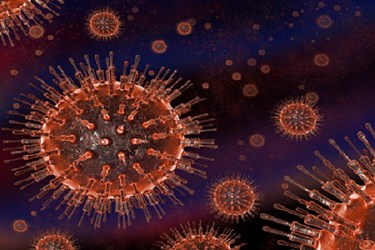Biotechs Set Sights On Fighting MERS Virus

More than 500 cases of MERS (Middle Eastern Respiratory Syndrome) have been reported around the world, up from 153 cases last November in only nine countries. The rising incidence of the SARS-like disease has prompted efforts to manufacture vaccines to help protect against the deadly disease.
MERS first appeared in Saudi Arabia in 2012, causing symptoms similar to SARS, including fever, shortness of breath, and cough. However, the disease is three times as life-threatening with a 30 percent fatality rate. Although the World Health Organization acknowledge that MERS is a serious public health concern, it is not yet designated as an emergency due to the lack of evidence of person-to-person transmissibility.
However, a new report released by Columbia University suggests that the disease could be spread by touch like SARS. Both MERS and SARS are caused by coronavirus, which can infect both humans and animals. No vaccines or treatment for MERS have been approved yet, however, as the Motley Fool outlines, there are currently three biotech companies are working to develop effective vaccines against the disease. These are Inovio Pharmaceuticals, Novavax, and Nanoviricides.
Inovio focuses on using synthetic DNA to replicate the MERS virus’ footprint in order to trigger an immune response. The company’s investigational vaccine was reportedly successful in inducing increased antibody and T cells levels in mice models of the disease.
Novavax is building a vaccine without weakened or dead virus just as Inovio. The company is using recombinant DNA from various sources to produce customized vaccines designed to elicit specific immune responses. Novavax is currently working with the U.S. government to develop recombinant vaccines for the prophylaxis of seasonal and pandemic influenza.
Nanoviricides is developing drugs that bind to viruses with ligands in order to dismantle them. The company recently announced that its experimental MERS vaccine was set for animal testing. The company is smaller than Inovio and Novavax and is not engaged in any collaborative efforts with pharmaceutical or government partners.
These three biotechs, though clinical or pre-clinical companies in nature, hold potential in manufacturing effective vaccines against the spreading MERS virus and could win accelerated approval for treatment of the disease, especially in the Middle East.
